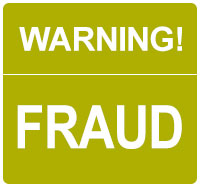Separation agreement scam using the name Fukui Kiyoharu or Ayoka Katashi
Date First Reported: February 2015
Primary Name Associated: Fukui Kiyoharu
Description of Potential Fraud:

Ontario firms have notified us that they received an email from the purported Fukui Kiyoharu or Ayoka Katashi looking to retain them with regards to a collecting overdue payments resulting from a separation agreement.
This is a classic bad cheque scam that presents as legal matter requiring the assistance of a lawyer. In this scam lawyers will be duped into wiring real funds from their trust accounts after depositing a fake cheque received as payment from the debtor (who is part of the fraud). See our Confirmed Fraud Page for more of an explanation of how these frauds work and to see other names associated with it. Our Fraud Fact Sheet lists the red flags of a bogus legal matter that is really a fraud.
Here is the initial email sent by the fraudster to the lawyer:
From: Fukui Kiyoharu [email protected]
Date: 22 February, 2015 11:25:47 PM EST
To: undisclosed-recipients:;
Subject: Your Legal Assistance is Highly Needed
Reply-To: [email protected]
—
Dear Counsel,
I am seeking legal representation from your law firm regarding a
breach of divorce settlement agreement I had with my ex husband who
now reside in your jurisdiction. We had an out of court agreement for
him to pay me $578,000.00 plus legal fees. He has only paid me $78,000
ever since this agreement was reached. He has agreed already to pay me
the balance yet he kept turning me around with numerous excuses. So it
is my belief that a Law firm like yours is needed to help me collect
my due settlement from my ex-husband or litigate this matter if need
be.
I need proper legal advice and assistance to know the best way to
handle this issue. Please let me know if you can be of assistance to
me or if not a referral could be helpful. I look forward to your kind
response.
Regards,
Fukui Kiyoharu
[email protected]
How to handle a real or suspected fraud
If you have been targeted by any of these frauds, please forward any of the emails and supporting documents that you have received to [email protected].
If you are an Ontario lawyer who suspects you are acting on a matter that might be a fraud, call LAWPRO at 1-800-410-1013 (416-598-5899). We will talk you through the common fraud scenarios we are seeing and help you spot red flags that may indicate you are being duped. This will help you ask appropriate questions of your client to determine if the matter is legitimate or not. If the matter you are acting on turns out to be a fraud and there is a potential claim, we will work with you to prevent the fraud and minimize potential claims costs.
What can you do to help put a stop to the fraud attempt? You can simply stop replying to the fraudster’s emails or inform them that you suspect fraud and will not act on the matter (or will take no further actions on the matter). You can report the fraudsters email addresses to the email hosting company. If you have a fraudulent cheque you can destroy it or send it to the fraud department of the financial institution, which may wish to see it. In Canada, you can report the fraud to the Canadian Anti-Fraud Centre.
We are often asked if it is worthwhile to report the fraud attempt to the police in the hopes of helping catch the fraudsters. You can certainly report the fraud to your local or federal law enforcement agencies, but unfortunately it is often difficult, expensive and time consuming for them to attempt to shut down these online fraud perpetrators (though there are some successes).
If you have been successfully duped, please immediately notify LAWPRO as there may be a claim against you. Instructions on how to report a claim are here.
For more immediate updates on fraud and claims prevention, subscribe to the email or RSS feed updates from LAWPRO’s AvoidAClaim blog.
Fraud Fact Sheet More fraud prevention information and resources are available on the practicePRO Fraud page, including the Fraud Fact Sheet, a handy reference for lawyers and law firm staff that describes the common frauds and the red flags that can help identify them.

Leave a Reply